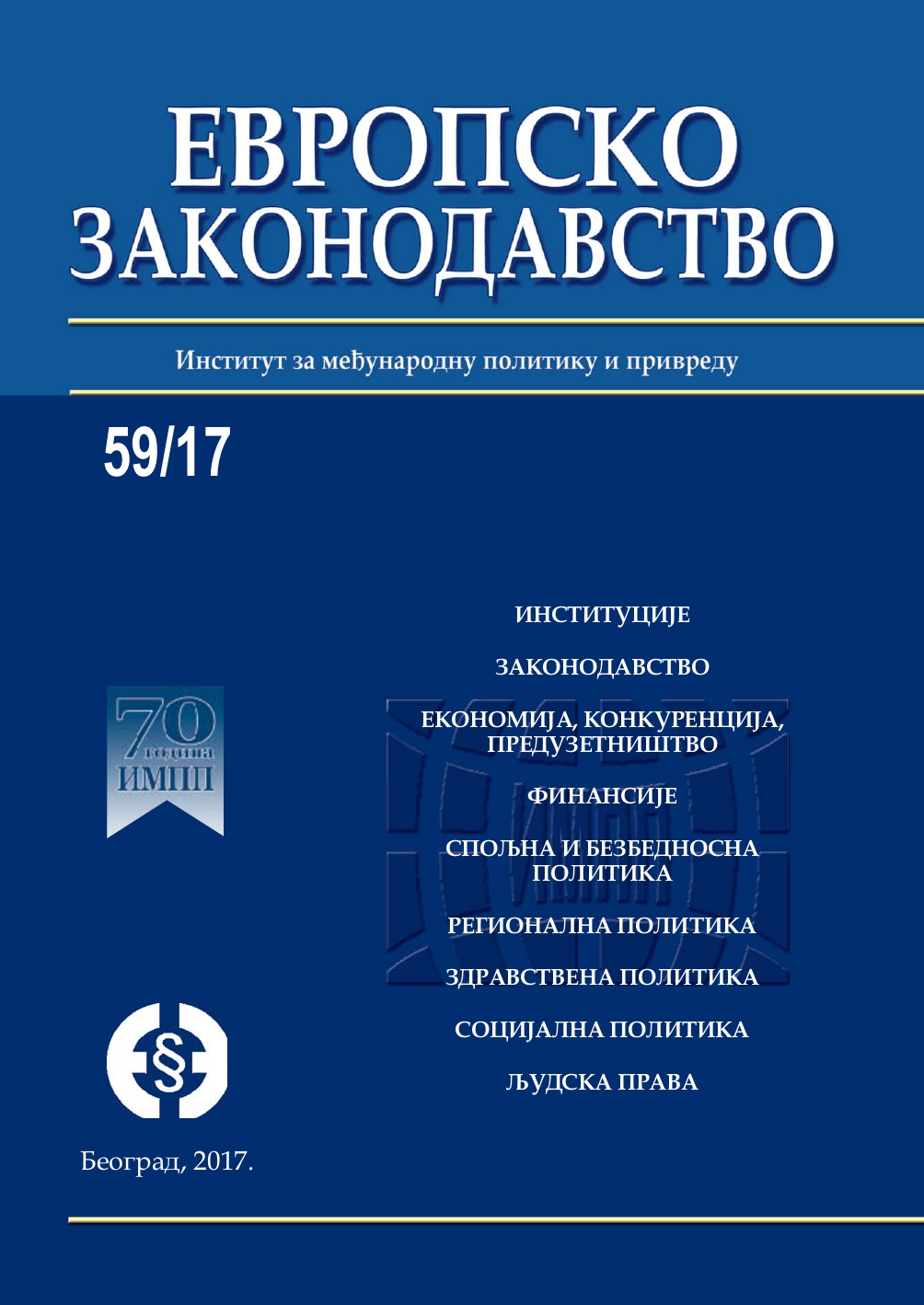Недоречености у институционалном систему Европске уније
Uncertainties in the institutional system of the European Union
Author(s): Slobodan ZečevićSubject(s): EU-Legislation
Published by: Институт за међународну политику и привреду
Keywords: The European Union;the institutional system;Commission;European Parliament;Council;federalism;confederalism;democracy
Summary/Abstract: The crisis of the European Union actually is a crisis of its constitutional order crucified between the application of federal and non-federal mechanisms of government. The process of adoption of legislation in the European Union is close to the one that occurs in the federal states as a kind of European governments (Commission) proposes to the House of Commons (European Parliament) and the House of States (Council) legislative acts. Despite all the progress towards a supranational decision-making European system is not federalized by the end. The Commission does not have the full range of powers that dispose of a government in the Member States. For example, the European Union does not have its own army in charge to defend its territory and therefore has no minister or commissioner of defence. There is no European Ministry of Interior with the authority to prevent and detect federal offenses. In the context of the European legislative procedure, European Parliament appears as a kind of the House of Commons within the imaginary bicameral Congress which is also composed by the House of States. In the federal model, the House of Commons has the power in the last instance to adopt the legislative text regardless of the objections and disagreements of the House of States. However, the European Parliament can only block the adoption of a legislative act whose contents not correspond to him, or about which there is no agreement with the Council.
Journal: Европско законодавство
- Issue Year: 2017
- Issue No: 59
- Page Range: 9-22
- Page Count: 14
- Language: Serbian

